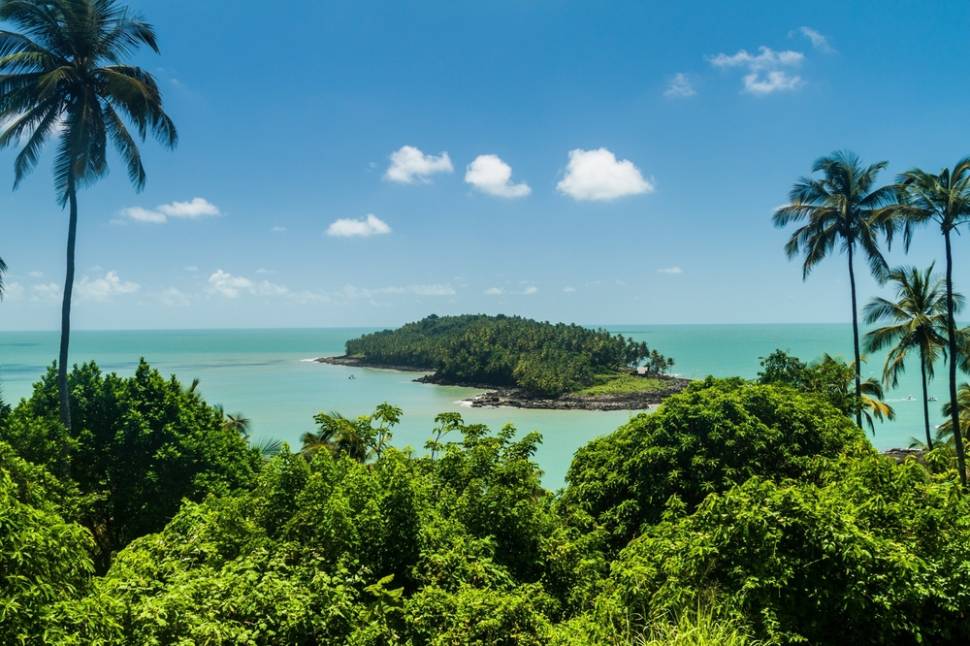The Devil’s Island And The Famous Prisons

Devil’s Island is a rocky but heavily palm-fringed islet of the Atlantic Ocean located about 7 miles off the coast of French Guiana, just across the mouth of the Kuru River, and is the smallest island in the island cluster of the Salis Islands.
This islet had been converted into a prison for criminals and political prisoners, thus classified as ”maximum security.” It emerged as the most beloved place of the French Republic for the displacement of traitors and its various political opponents, but also from the most infamous prisons in the world. Devil’s Island began operating as a prison under the emperor of France Napoleon III in 1852. In the history of this prison, for some time it was allegedly also used as a leper house.
The best-known inmate of these prisons was the French-Jewish officer Alfred Dreyfus who was convicted of national treason and transferred there on 13 April 1895. In his four-year confinement there, until 5 June 1899 when he was released, he wrote about 1000 letters that he filled out in a diary. In addition to this, many other mainly political exiles were transferred to Devil’s Island.
Another well-known prisoner was Henri Charriere, also known as “butterfly” or ”Papillon.” His story became a book and a film. He managed to escape twice, once in 1916, but for a short time and once in 1944, when he fled to Venezuela, where he stayed for several years. In 1968, he wrote his autobiography. Its success enabled him to return to France two years later.
In World War I, spies and deserters were mainly transported to Devil’s Island, mainly from the French colonies refusing to fight on another continent. On 17 June 1938, shortly before the start of World War II, France abolished the transfer of prisoners to prisons located in colonies. Finally, the last prisoners of Devil’s Island left it 15 years later, in 1953.
About 70,000 people were driven there, and only 5,000 of them manage to leave the place while they were still alive. Access to the island was difficult, while escape, although constantly in the minds of the prisoners was impossible, due to the sharks swimming on the island waiting for the bodies of the prisoners.
Many prisoners were tortured, while others died after deadly brawls. The conditions on Devil’s island were inhumane. They lived in tiny cells, and worked hard; 12 hours a day, tied in chains. Many were starving, and several of the prisoners were placed in cells under the earth, with railings on the roof, regardless of the weather. Rats and bats approached them as prey. If they died, they usually became food for sharks, although there is a cemetery with few graves on the island. Many tried to escape but were lost in the strong currents or the jaws of sharks. Only two made it.
The prison closed in 1953. The island was renovated in the 1980s, although many of the facilities remain as they were. They have now turned the place into a tourist attraction. Although tourists are not allowed to approach the Devil’s Island but visit Royal’s Island, where some cells and the buildings of the prison administration were located.
Many former prisons or places where tortures have taken place have become an attraction for tourists. For some reason, people try to engage themselves in the tragic stories of people who they consider to be heroes. The excessive comfort in which we live nowadays makes us want to feel a kind of challenge and imagining that we live in such places works like a shot of adrenaline in our blood. No one knows for how long these places will be in fashion but if one thing is for sure this is that humanity has suffered a lot and prisons in the old times were nothing like today.
Bring the best of the CEOWORLD magazine's global journalism to audiences in the United States and around the world. - Add CEOWORLD magazine to your Google News feed.
Follow CEOWORLD magazine headlines on: Google News, LinkedIn, Twitter, and Facebook.
Copyright 2025 The CEOWORLD magazine. All rights reserved. This material (and any extract from it) must not be copied, redistributed or placed on any website, without CEOWORLD magazine' prior written consent. For media queries, please contact: info@ceoworld.biz








